Goethe-Institut Kanada 1992-2011
Join us on a journey through time!
© photo: Etta Gerdes
Consensus & contestation: dialogues is a major multi-dimensional event that invites members of the academic and artistic communities to collaborate in creating a space for exchange between female artists and theorists. Through workshops, exhibitions, and performances, this interdisciplinary forum “hopes to promote the exchange of ideas among female artists and theorists,” writes Dieta Sixt, “and thereby lay the groundwork for innovative collaboration and reflection.” Presented in collaboration with Tangente, German artist Ilka Doubek’s multimedia performance Reaching Beyond is a collaboration of German and Canadian artists. Director Jutta Brückner presents her film Un amour colossal.
© Collection Cinémathèque québécoise
The screening of German movies has always been part of the cultural program of the Goethe-Institut Montreal. At the institute itself or in partnering theatres, images are projected at hundreds of screenings, retrospectives and special sessions, often in the presence of the directors.
Launched in 1993, Découvertes allemandes presents a series of recent films whose content is often off the beaten track. This annual film event is shown in the institute’s famous screening room for over twenty years! Another series is the Carte blanche: over the years, cultural figures such as Louis Bélanger, Stéphane Lépine, Guy Maddin, Denis Chouinard, Marie Brassard and Denis Côté (even twice!) are invited to curate a film program.
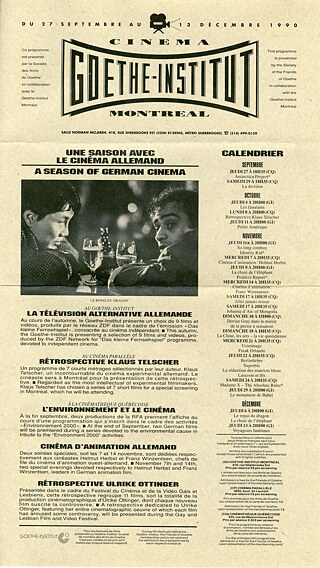
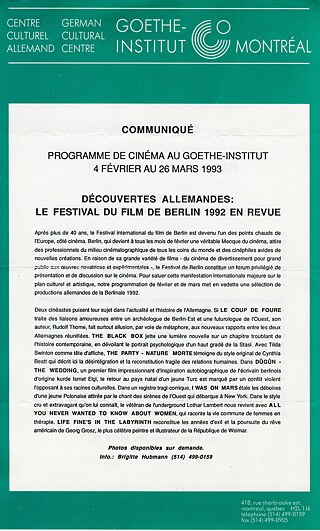
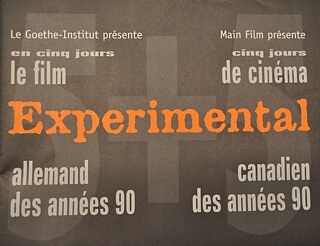
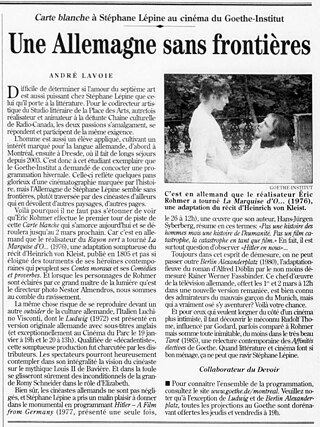
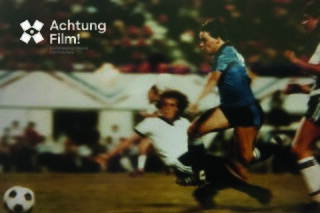
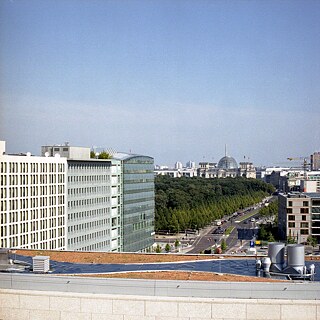
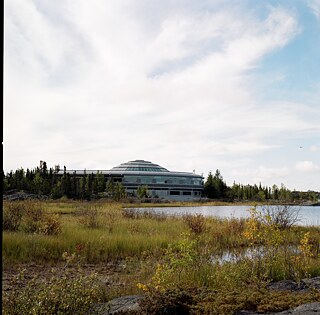
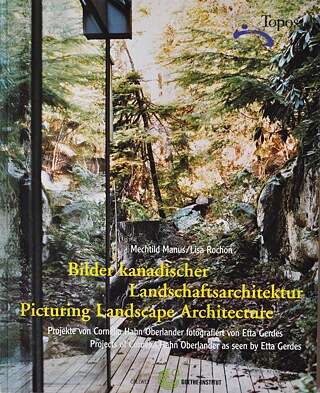
© photo: Goethe-Institut
Sparking interest and enthusiasm for Germany, motivating young people to learn German, and creating a worldwide network of schools - these are the goals of the PASCH initiative, which was launched worldwide in 2008 by then Foreign Minister Steinmeier. PASCH stands for “Schools: Partners for the Future”. The schools are distinguished by the fact that their German programs have a particularly high priority.
The network has grown steadily since 2008. Today, the PASCH network counts more than 2,000 schools worldwide. Many of them are supported by the Goethe-Institut.
In Canada, the Goethe-Institut oversees five PASCH schools. Of these, the following three are located in Montreal: Villa Sainte Marcelline, le CÉGEP du Vieux Montréal and the Collège de Rosemont. Near Toronto, the network includes Appleby College and SIDES in British Columbia. The Goethe-Institut advises school administrators and teachers on the development of German lessons and facilitates participation in in-service training. Exchanges between PASCH schools are particularly encouraged. This allows students to participate in interesting and motivating projects. One current project is PASCHtopia: a virtual game for learners of German with visions. In 2020, students from Canada, the USA and Mexico come together in this framework to develop ideas for a better society during an intensive weekend.
Image: Students of Villa Sainte-Marcelline, one of the PASCH partner schools of the Goethe-Institut Montreal © Nives Bazergui
“I have now taken two courses at the Goethe Institute in Ottawa and have enjoyed the experience immensely. The teaching is of the highest calibre and the rapport between the class and teacher excellent. I know that I have learned a lot during my studies there, and the exam results of other students as well confirms the high quality of the teaching offered.”
Dr. Geoffrey Greatrex, Chair, Dept. of Classics & Religious Studies, University of Ottawa
“The courses that I have taken at the Goethe-Institute in Ottawa, as well as the readings presented there by German and German speaking writers, I have found to be invaluable. They have always been conducted with the highest professionalism. I am extremely interested in improving my command of German for professional reasons. My work as a Curator has over the years involved me in several specific projects which led me to do research in both Germany and Austria.”
Ann Thomas, Curator of the photograph collection at the National Gallery of Canada
”The Ottawa Goethe Institute is a wonderful, friendly place that is as educational as it is encouraging. After the first few classes, my longstanding fear of studying a second language melted away. The language instruction I received here allowed me to travel throughout Germany to conduct my research on the European Union. The classes and cultural events held by the Ottawa Goethe Institute furthered my appreciation for German culture and the beauty of the German language.”
Kevin Young, Master’s Student at the Institute of Political Economy, Carleton University.
“Being retired, I didn’t really feel at ease to follow a course in a university environment. A friend recommended the Goethe-Institute where I am now enrolled at the Mittelstufe level which enables me to communicate in German with my grandchildren who live in Salzburg. I appreciate immensely the quality of teaching as well as the cultural activities offered by the Goethe-Institute.”
Patricia Norman
© photo: Goethe-Institut
14,000 kilometers from east to west across Canada. More than 75 schools are visited in three months by the DEUTSCHMOBIL, which offers an innovative and interactive program for young learners. In a fun way, students are motivated to learn German and get to know Germany.
The campaign starts in March with the slogan “Mit Deutsch in Fahrt kommen!” (get going with German). On board the minibus, Eva Porten and Florian Göstl go on a grand Canadian tour with the DEUTSCHMOBIL as language ambassadors on behalf of the Goethe-Institut. The suitcase is packed with prizes to be distributed to the teenagers learning German, as well as teaching materials that the teachers will be delighted to receive. A lasting memory of the tour: the song D’Mob-Rap, composed by a group of young German students!
The DEUTSCHMOBIL is an example of the successful cooperation between the German Embassy, the Goethe-Institut and the Canadian German teachers’ associations.
By one of those inexplicable coincidences, part of the 2010 programming of the Montreal Museum of Fine Arts and the Théâtre du Nouveau Monde revolves around one country. Yes, it’s Germany! That’s all it took for the directors of these institutions, Nathalie Blondil and Lorraine Pintal, to contact the director of the Goethe-Institut, Mechtild Manus. United by the idea of grouping their events under the same banner, they proposed to the other Montreal institutions to join them in presenting a series of artistic events on the occasion of the 20th anniversary of the German reunification: 8 X L’Allemagne. A symbolic moment well chosen for a gathering, isn’t it?
There are eight events in total. In the musical field, for example, there are lectures by Francois Tousignant on milestones in German opera history and by Chrisine Fortier on heavy metal in Germany at the Bibliothèque et Archives nationales du Québec. There are seven concerts representing the works of German composers at the Arte Musica Foundation. Furthermore, the opera Salome is performed at the Montreal Opera. At the Théatre du Nouveau Monde, you can see Brecht’s Threepenny Opera, and the Musée des beaux-arts de Montréal presents Rouge Cabaret: The Terrifying and Beautiful World of Otto Dix. The Quartiers sans voitures (Car-Free Neighborhood) week, organized by the Centre d’écologie urbaine and the Goethe-Institut Montreal, is also part of the program.
When asked to name a famous German author, Bernhard Schlink’s name often comes up (along with Goethe, of course). And for good reason: he is the author of the best-seller Der Vorleser (The Reader). Born in 1944 near Bielefeld, the novelist and law professor published his world-famous novel in 1995: a bestseller that has won numerous awards at home and abroad, been translated into some 30 languages and was adapted into a film by Stephen Daldry, starring Kate Winslet and David Kross.
In 2011, a reading tour coordinated by the Montreal institute takes the celebrated novelist from east to west in Canada - to Halifax, Montreal, Ottawa, Toronto, Vancouver and Whitehorse! - to present his latest book, The week-end, to the delight of his readers.
© photo: Raumlabor